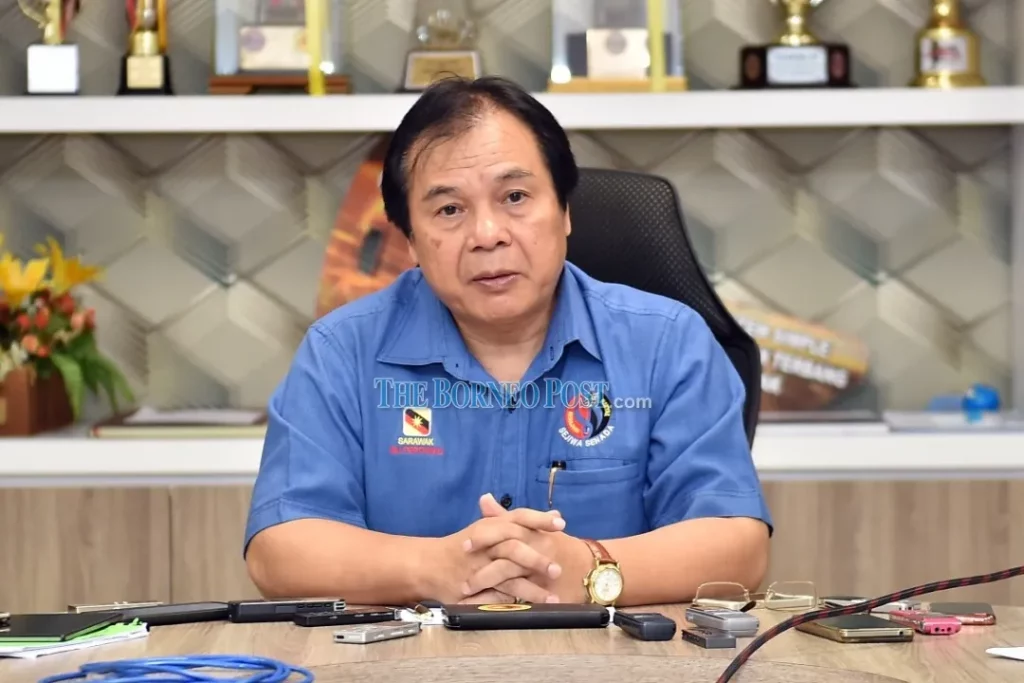Julaihi: Petros’ role as sole gas aggregator non-negotiable, all parties must comply with law

KUCHING (Nov 13): Petroleum Sarawak Berhad’s (Petros) appointment as the state’s sole gas aggregator is non-negotiable, said Minister of Utility and Telecommunication Dato Sri Julaihi Narawi. He stressed that the Distribution of Gas Ordinance 2016, amended in 2023, is a law that seeks to ensure all parties, including Petroliam Nasional Berhad (Petronas), comply with the licensing requirements set out. “The Sarawak government, through Petros, is still in technical discussions with Petronas to ensure compliance with all requirements under the Ordinance. “These discussions between Petros and Petronas do not involve any negotiations on Petros’ appointment as the sole gas aggregator. “Therefore, I would like to emphasise once again that the appointment of Petros as the sole aggregator is non-negotiable, meaning no other gas aggregator exists in Sarawak except Petros,” he stressed during the question-and-answer session at the State Legislative Assembly (DUN) today. He was responding to a question from Lidam Assan (GPS-Katibas) on whether the appointment of Petros as the sole gas aggregator for Sarawak was fully completed, which was also asked by Safiee Ahmad (GPS-Daro), Royston Valentine (GPS-Tellian), and Iskandar Turkee (GPS-Jepak). “Therefore, I will address all these questions together. The appointment of Petros as the sole gas aggregator is effective from Feb 1, 2024. “There are no other gas aggregators in Sarawak except Petros,” he said. Julaihi added that the latest developments in Petros’ role as the sole gas aggregator in Sarawak include several Gas Sales Agreements (GSAs) which have been signed with downstream gas users including Sarawak Petchem Sdn Bhd on July 22, 2024; Sarawak Energy Berhad on July 22, 2024; and Shell MDS Sdn Bhd on Aug 18, 2024. He said the Ministry of Utility and Telecommunication has issued Retail of Gas licences to 13 upstream gas players and 10 downstream gas players to date. “Failure to comply with the licensing requirement is an offence under Section 20 of the Ordinance,” he said. As the sole gas aggregator, he explained that Petros, a Sarawak government-owned company, is responsible for carrying out all activities related to the procurement, supply, distribution, and sale of natural gas in the state. He said Petros is also accountable for the planning, development, operation, and maintenance of the natural gas distribution network system in Sarawak.
Dr Jerip: Consultants to be appointed for Trans-Borneo Railway feasibility study

KUCHING (Nov 13): The federal Ministry of Transport is currently in the process of appointing consultants for the feasibility study of the Trans-Borneo Railway project, said Datuk Dr Jerip Susil. The state Deputy Transport Minister said these consultants will conduct the study, funded by the federal government, to evaluate and determine the potential railway models for implementation in Sarawak and Sabah. “The financial models of the Trans Borneo Railway, which are part of the feasibility study scope, will be determined once the feasibility study is completed. “The duration of this feasibility study project will take 12 months,” he said during the question-and-answer session at the State Legislative Assembly (DUN) Sitting here this morning. He was responding to a question from Baru Bian (GPS-Ba Kelalan) on the proposed Trans-Borneo Railway project. Dr Jerip said the Ministry of Transport Sarawak will be representing the Sarawak government on both the technical and steering committees, collaborating with its federal counterpart, relevant federal agencies and statutory bodies, and the Sabah government to coordinate and oversee the study. “Other committee members from the Sarawak government include representatives from the Sarawak Economic Planning Unit, Ministry of Infrastructure and Port Development, Public Works Department Sarawak, Ministry of Natural Resources and Urban Development, and the Land and Survey Department Sarawak,” he added. He said among the scopes of the feasibility study include the technical scope, which involves operational characteristics, cost, alignment, stations and depot locations, and stakeholder management; and commercial scope involving strategic vision and value proposition, demand estimation, high-level implementation model, risk and challenges, and stakeholder engagement. “There is also the socio-economic scope involving economic case for Trans Borneo Railway Project, national economic and social impact, catalytic impact of transit nodes, high-level narratives and stakeholder engagement; and project funding where the scope is to propose project funding or financing structures, phased payment approach by Government of Malaysia, financial model, and benchmarking with other rail operators,’’ he said.

